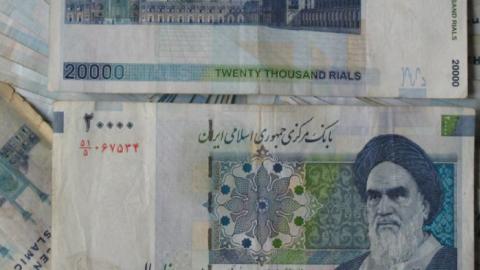Sanctions are a popular tool in the US foreign policy toolbox. There are only so many options to compel a nation to change its behavior. Most attempts happen behind closed doors, in private conversations between state representatives. But at some point “private” doesn’t cut it, so then the US goes public.
There’s public shaming—a tactic that despite the skepticism does seem to bear fruit in some circumstances. There’s a reason advocacy groups work so hard to convince US officials to “name names” of bad actors and their victims. Think about how much Vladimir Putin hated and still hates when US officials bring up Sergei Magnitsky. (As an aside, it seems President Donald Trump understands the tactic’s impact, which is why he publicly brought up Otto Warmbier while using all means of pressure against the North Korean regime, and why he stopped while attempting to negotiate. Silence on the matter is defensible if it had the desired effect. Whitewashing the crimes against Otto, however, has not.)
But oftentimes private and even public moral scolding isn’t enough. There needs to be more. For example, publicly shaming Russia for employing a nerve agent on UK soil in an assassination attempt requires more than finger-wagging. The pressure, or punishment, as it were, must fit the crime. And so the United States and our allies kicked out Russian spies and imposed sanctions.
Sanctions are popular because they bite. They do more than shame regime officials. They weaken currencies, dry up bank accounts, and preclude certain pleasures and conveniences of regime officials. Although intended to discriminate between civilians and regimes, like military force, they do affect civilians. But unlike military force, they do not risk US lives, nor are they intended to take the lives of US enemies. Military force, the bluntest tool and meant to cause the greatest pain, should only be used when necessary. It is worth noting, however, that the threat of military force, like a storm cloud, is always looming over diplomatic relations with varying degrees of intensity.
Keeping the parallels with military force, the United States tries to differentiate between combatants and noncombatants. We do not and should not intentionally wield sanctions to inflict pain on civilians. In the case of Iran, there are many Iranian people who oppose the regime. Failing to distinguish between them and their oppressors would be unjust and ineffective.
The United States has imposed crushing sanctions on the Iranian regime. And as the regime defiantly refuses to change its behavior—to do what Secretary of State Michael Pompeo laid out as necessary for the regime to feel reprieve—the United States turns the knob on the pressure campaign: tighter sanctions, less money, less investment into the economy, and more pain.
Despite US intent and efforts, it is inevitable that crushing sanctions will affect the Iranian people, many of whom want the regime to change as much as the US government wants the regime to change.
Still, the United States has carved out major exceptions with the care and wellbeing of the Iranian people in mind. US direction on sanctions makes clear that US sanctions laws provide allowances for sales of food, agricultural commodities, medicine, and medical devices to Iran by US and non-US persons. The Trump administration’s guidance on humanitarian exemptions is the same guidance the Obama administration used before the Obama administration’s relaxation of sanctions that happened as a result of the Joint Comprehensive Plan of Action (JCPOA or “Iran Deal”).
Defenders of the Iran regime and critics of the US approach to Iran argue that US sanctions affect the Iranian people, many of whom are the weakest in society, including children and those who need regular medical care despite the exemptions. Medical devices and medicine are not making it to those who need it most. This is due to a couple of reasons. One, the Iran regime is hoarding critical medicine and medical devices and exploiting the situation for gain, while spreading the lie to the Iranian people that the United States sanctioned the humanitarian goods. Two, a general strain on the economy and a realization that the Iranian banking system is unreliable can prevent transactions that would facilitate the movement of goods that would satisfy the basic physical needs of the Iranian people.
On this last point, US special envoy to Iran Brian Hook shot back to reporters who asked about the matter: “We have done our part to permit the sale of humanitarian goods to Iran. That is our part. That is our role. Iran has a role to make these transactions possible. Banks do not have confidence in Iran’s banking system … That’s Iran’s problem; it is not our problem.”
This is right. The United States is exercising prudence in its employment of sanctions, a tool short of military force, to try to compel the Iranian regime to change its behavior. The US is employing just war considerations of proportionality and discrimination in the course of its employment of sanctions. That doesn’t mean there won’t be disheartening impacts on innocents. But we should be clear about who should receive the blame and insist, vigorously, that point is not lost.
And when US sanctions affect the Iranian people—the people feeling the brunt of the Iranian regime’s routine injustice—the blame should be placed squarely with the regime. When the Iranian regime ceases its malign behavior outside its borders that threaten the United States and our allies and instead focuses on the wellbeing of its own people, the United States will lift sanctions. The sooner that happens, the better for Americans and Iranians.
















